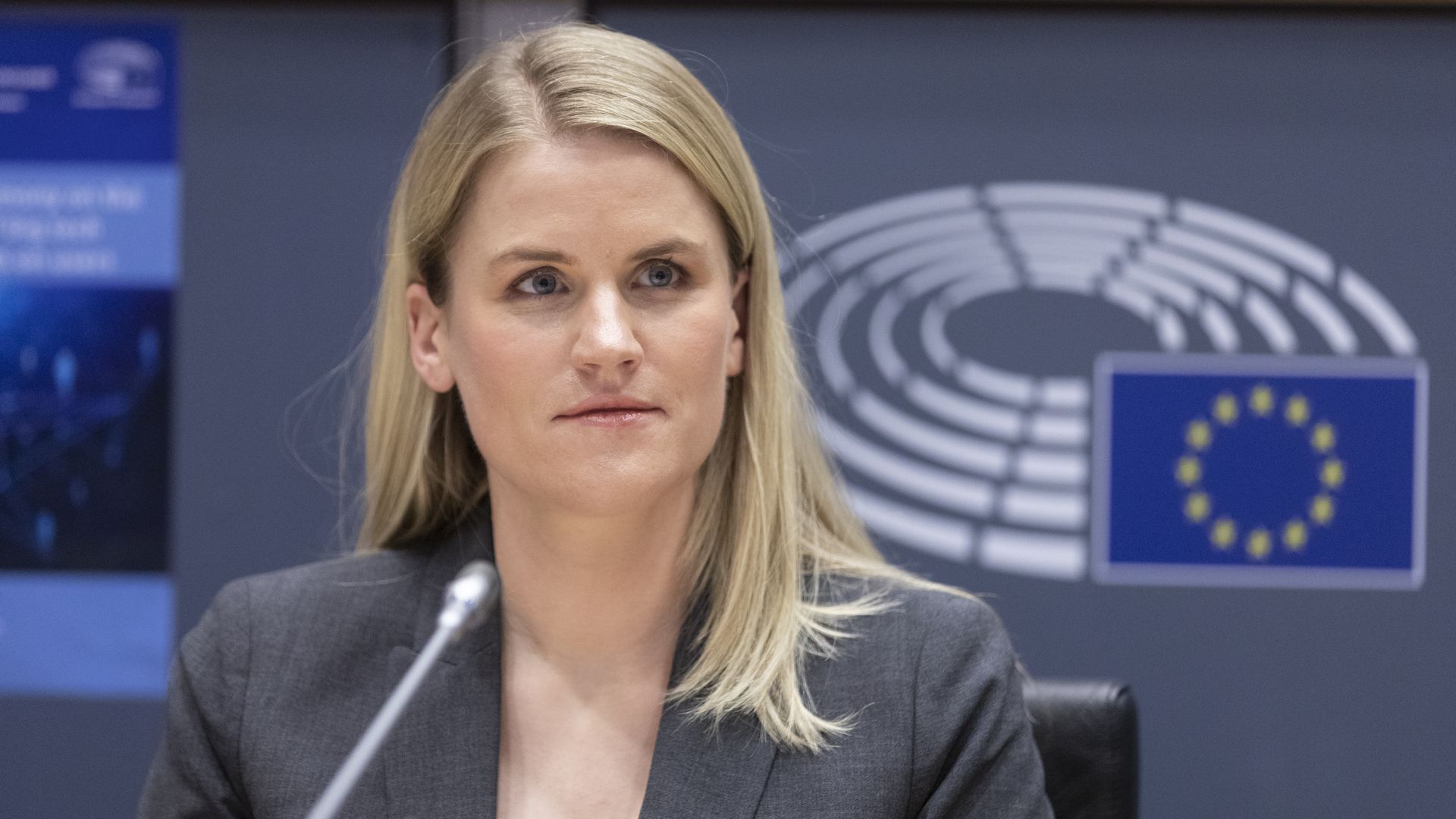Lawmakers bring back Facebook whistleblower for encore
Add Axios as your preferred source to
see more of our stories on Google.

Facebook whistleblower Frances Haugen speaks in front of the Internal Market and Consumer Protection Committee at the European Parliament on November 8, 2021 in Brussels, Belgium. Photo: Thierry Monasse/Getty Images
Facebook whistleblower Frances Haugen returns to Capitol Hill Wednesday to testify before the House Energy and Commerce Committee on proposals to revamp online platforms' liability immunity.
Why it matters: Haugen, a former Facebook engineer, has shared troves of internal research documents that lawmakers believe could open a path for legislation overhauling Section 230 of the Communications Decency Act, tech's liability shield.
- Haugen will testify before the Commerce Committee's communications and technology subpanel, detailing why she thinks Congress needs to act to hold Big Tech accountable, according to her opening remarks.
The big picture: Meta, formerly known as Facebook, has endured months of public scrutiny about its internal research and impacts on users, including on younger children. That's thanks to Haugen's leaks, testimony and tons of press coverage of the Facebook Papers.
Context: In earlier testimony to the Senate Commerce Committee, Haugen expressed support for changes to Section 230, which lets platforms moderate user-contributed content without opening themselves to lawsuits. She said she supports modifying Section 230 by "exempting decisions about algorithms."
- "Facebook wants you to get caught up in a long, drawn-out debate over the minutiae of different legislative approaches," Haugen said in her prepared remarks. "Please don’t fall into that trap. Time is of the essence. There is a lot at stake here. You have a once-in-a-generation opportunity to create new rules for our online world."
- One bill currently under consideration, from Rep. Frank Pallone (D-N.J.), chairman of the House Commerce committee and fellow Democrats Mike Doyle (D-Penn.), Jan Schakowsky (D-Ill.) and Anna Eshoo (D-Calif.), would make tech companies liable when they "knowingly or recklessly" use an algorithm to recommend content "that materially contributes to physical or severe emotional injury."
Details: Jim Steyer from Common Sense Media, digital policy expert Karen Kornbluh, Color of Change president Rashad Robinson, University of Miami law school professor Mary Anne Franks and others will also testify alongside Haugen.
- "[Haugen] is a really credible witness who has really moved the ball forward with the effectiveness of her testimony here and in Europe," Steyer told Axios.
What they're saying: "Both Republicans and Democrats want to see something done on Section 230, and the Facebook Papers shined a bright light and a peek behind the curtain of what was really going on," Rep. Doyle, who leads the subcommittee hosting Wednesday's hearing, told Axios. "That's why [Haugen's] testimony will be useful."
- Doyle said whatever Section 230 bill ultimately comes out of the committee should be a combination of the best legislative ideas from both Republicans and Democrats, after hearing from Wednesday's witnesses and other experts.
- Doyle said he's confident if Democrats and Republicans manage to agree on changes to Section 230, any bill will have President Biden's support.
Yes, but: While both parties have their beefs with Big Tech's platforms, they're coming from different directions, with Democrats complaining that companies need to moderate more aggressively and Republicans maintaining that existing moderation schemes censor conservative thought.
- "Big Tech has abused its power by defining what is ‘true,’ what we should believe, what we should think, and controlling what we read,” said Sean Kelly, spokesperson for Rep. Cathy McMorris Rodgers (R-Wash.), ranking Republican on the House Energy and Commerce Committee. "House Republicans on E&C look forward to discussing our Section 230 proposals which we unveiled in July to hold Big Tech accountable and stop censorship."
Be smart: Congress has a lengthy to-do list to complete before the end of the year, and the Biden administration has many of its own priorities. Real reform, if the two parties can agree, will most likely have to wait for 2022.
Editor’s note: This article has been corrected to note that Rep. Cathy McMorris Rodgers holds a congressional seat in Washington, not Oregon.
